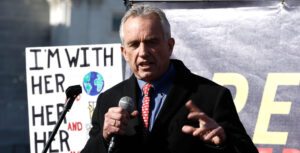The similar destinies of the United States and Rome can at times seem eerie. The three Punic Wars fought between the middle of the third century BC and the middle of the second century BC, constituted the great world wars of ancient Mediterranean civilisation, and ended with Rome’s complete destruction of Carthage. More recently, the two world wars of the 20th century ended with the complete destruction and defeat of Germany and Japan, and with the United States in a position of global dominance. In both conflicts, an empire’s supremacy reached its peak at the moment of victory.
Like the United States during the Second World War, Rome in the course of the Punic Wars became an empire. The First and Second Punic Wars saw Roman power established over Sicily, Sardinia and a good part of Spain — all former areas of Carthaginian influence. Rome also gradually extended its sway over greater Greece and Numidia, the latter coinciding with modern Algeria, to the west of Carthage on the North African coast.
Again, somewhat like the United States, imperialism helped lead to a dramatic increase in wealth in Rome itself, as a class of nouveau riche in the capital benefited from war booty, overseas trade, money lending and the like, according to the late British classicist S. A. Handford. Eventually, the Roman legions would evolve from a mass conscription military to a more professional, volunteer fighting force in order to regulate the vast territories under its influence as an imperial behemoth. The rough parallel with the development of the United States as a great power is hard to ignore, given how Washington itself has developed into a money-culture of well-heeled think tanks and flashy lobbyists, even as the mass conscription army that fought Second World War and Vietnam has morphed into a highly professional volunteer force of working-class youth, culturally divorced from the well-bred policy nomenklatura in the capital.
But the comparison becomes especially eerie when one considers that following the Punic Wars and Rome’s becoming an empire, it immersed itself in small wars against tribes and other chieftains that brought little glory and much political complications to Rome, and were a factor in its gradual decline. Of course, that is the common fate of empire, since to influence large and varied regions of the Earth naturally requires military as well as economic and political involvement. In the oft-quoted words of the mid-20th century American theologian, Reinhold Niebuhr:
“The same strength which has extended our power beyond a continent has also interwoven our destiny with the destiny of many peoples and brought us into a vast web of history in which other wills, running in oblique or contrasting directions to our own, inevitably hinder or contradict what we most fervently desire.”
The young Winston Churchill was reading into the worst nightmare of Niebuhr’s and America’s imperial future when, in 1897, he described Afghanistan in The Story of the Malakand Field Force: “a roadless, broken and underdeveloped country; an absence of any strategic points; a well-armed enemy with great mobility and modern rifles, who adopts guerrilla tactics. The result… [is] that the troops can march anywhere, and do anything, except catch the enemy….
“The impractical”, the young Churchill wisely continues, “may wonder why we, a people who fill some considerable place in the world, should mix in the petty intrigues of…border chieftains”. Some, whom Churchill calls “bad and nervous sailors”, would simply cut and run, even though that would be impossible under the circumstances, whereas others call for “full steam ahead”, that is, a dramatic increase in military resources until the frontier valleys “are as safe and civilized as Hyde Park”. But, as Churchill intimates, there are usually neither the troops nor the money nor the will to do any such thing. Therefore, “the inevitable alternative” is a system of “gradual advance, of political intrigue among the tribes, of subsidies and small expeditions”.
Subsidies and small expeditions? Now we are at a point of concision that defines the ancient Roman imperial past and the modern American one. Arguably the signature Roman imperial expedition, which vexed Rome and contributed to much political turmoil in the capital, was the so-called Jugurthine War, which lasted for seven years near the end of the second century BC. We owe our account of it to Sallust, who was born a few decades later in the first century BC, a time when this war fought by the Romans in Numidia against its king, Jugurtha, was still recent and presumably hotly debated. The geopolitics of the Jugurthine War were straightforward. Numidia, to the west of Carthage, had been an ally of Rome and their common hostility to Carthage had cemented their alliance. Yet, following Rome’s destruction of Carthage, Numidia suddenly no longer required Roman protection. That set the context for Numidia’s efforts at erasing Roman influence from its sprawling and difficult geography.
Jugurtha was a brilliant and devious king who fought against his adopted siblings over the spoils of Numidia, and bribed his way to victory time after time by his intrigues with Rome. He corrupted Rome and concomitantly gained power in Numidia. At first he was Rome’s ally. Then he became Rome’s enemy. By the time the Roman power structure realised he had to be destroyed it was too late to avoid a major war in a faraway territory. Sallust describes the war as “a hard-fought and bloody contest in which victories alternated with defeats”. The struggle, he goes on, “played havoc with all our institutions… For Jugurtha was so crafty, so well acquainted with the country, and so experienced in warfare, that one never knew what was the most deadly — his presence or his absence, his offers of peace or his threats of hostilities.”
There are shades of Panamanian dictator Manuel Noriega, al-Qaeda leader Osama bin Laden, and Iraqi dictator Saddam Hussein in Jugurtha, in terms of the unconventional threat posed to Rome and the United States. In some cases the imperial power was ultimately victorious, as was Rome against Jugurtha; in some cases not. But the overall effect over time was to subtly and not so subtly weaken the empire.
An analogue from British imperial history was in Waziristan of the Thirties and Forties, when British troops tried and failed to capture the Faqir of Ipi, a radical cleric who, because of his narrow tribal base, appealed to pan-Islamic ideals in the struggle against colonial occupiers. The Faqir, or holy man, whose real name was Mirza Ali Khan, hid out for years in the caves straddling the Afghanistan and Pakistan border, inspiring his troops with sermons on religious war. Despite British aerial bombardment, the Faqir died a natural death in 1960.
Churchill’s comments ring loudly here. A great power cannot often cut and run, nor can it achieve total victory in these small wars. Britain, whose days as a great empire are over, no longer faces this dilemma. But the United States surely does. America is not a country like Sweden or Belgium. It would be simple if it were. Instead, it is, to repeat, a great power. Despite Vietnam, Afghanistan and Iraq, the United States cannot merely withdraw from the developing world, whose very size, political and cultural variety, and general instability guarantees that Washington will regularly face wrenching choices about how to proceed.
The problem is compounded by the nature of the foreign policy establishment in Washington, often disparaged as the “Blob”, because it often thinks according to a single, well-rehearsed mindset. The Blob wants to do great things in this world, because its heroes — those it particularly wants to emulate — were “present at the creation”, as the saying goes. I refer to the American inventors of the post-war order: men such as George Kennan, John McCloy, Averell Harriman, Dean Acheson and so on. The alliance structure that these men built would eventually, over the course of the decades, win the Cold War. The Blob wants to do something similar: create a new and long-lasting American order.
The difficulty with this grand ambition is that the United States is not the country it was in the Fifties. During that period, America was the only major industrial power in the world whose infrastructure was not severely damaged by the Second World War. This gave the United States a comparative advantage that would last for decades. Back then, it completely dominated the world economy. Its robust middle class underwrote a great navy. It was a real nation-state with a military draft. This was long before the American middle class divided into an upper-middle global elite and a lower-middle trending toward poverty. Moreover, this middle class had just gone to war in Europe and the Pacific, and was consequently understanding of rebuilding Europe and Japan. And the foreign policy elite that guided America, the elite that was “present at the creation”, had themselves just gone through the Second World War, holding key positions. They had a comprehension of the world and the tragic choices involved that the American elite of today often lacks.
There is a pattern in all of this: great power wars strengthen a nation and relatively smaller expeditionary wars dissipate it. In our age, a small war means a professional military in fierce combat and a nation at the shopping mall, oblivious to what is going on overseas. When the population at home cannot relate to the fighting overseas, it is probably best if possible not to do it.
The question becomes: can great power conflict over Ukraine and Taiwan rejuvenate America, as it did after 1945? In that way, America would avoid the fate of Rome. Possibly. Of course, there is no mass conscription military anymore and President Joe Biden — despite all the military aid he has been sending — has wisely not committed American troops to the defence of Ukraine. Nevertheless, the national interest in defending Ukraine and Taiwan is clearly much more obvious than toppling an Iraqi dictator or staying militarily engaged in Afghanistan for two decades.
And yet, the Biden Administration is going beyond merely defending Ukraine and Taiwan with arms shipments. It is actually demanding that all countries in the world become democracies, something that the great secretaries of state of the late-Cold War Era, Henry Kissinger, George Shultz, and James Baker III, never would have done. Those diplomats were more interested in reconciliations than with issuing ultimatums. Issuing ideological ultimatums is a sign of decadence, that befits a country that is splitting at the seams politically and with an out-of-control national debt.
The Jugurthine War helped presage the end of the Roman Republic. Will America recover from the stain of its Middle East adventures? It’s an open question. Yet, great power rivalry that will likely continue for years, by engaging the whole society and economy, may change America in unpredictable ways, possibly leading to more political and social cohesion. Meanwhile, possessing a memory of Rome and what it went through can only help.
Disclaimer
Some of the posts we share are controversial and we do not necessarily agree with them in the whole extend. Sometimes we agree with the content or part of it but we do not agree with the narration or language. Nevertheless we find them somehow interesting, valuable and/or informative or we share them, because we strongly believe in freedom of speech, free press and journalism. We strongly encourage you to have a critical approach to all the content, do your own research and analysis to build your own opinion.
We would be glad to have your feedback.
Source: UnHerd Read the original article here: https://unherd.com/




